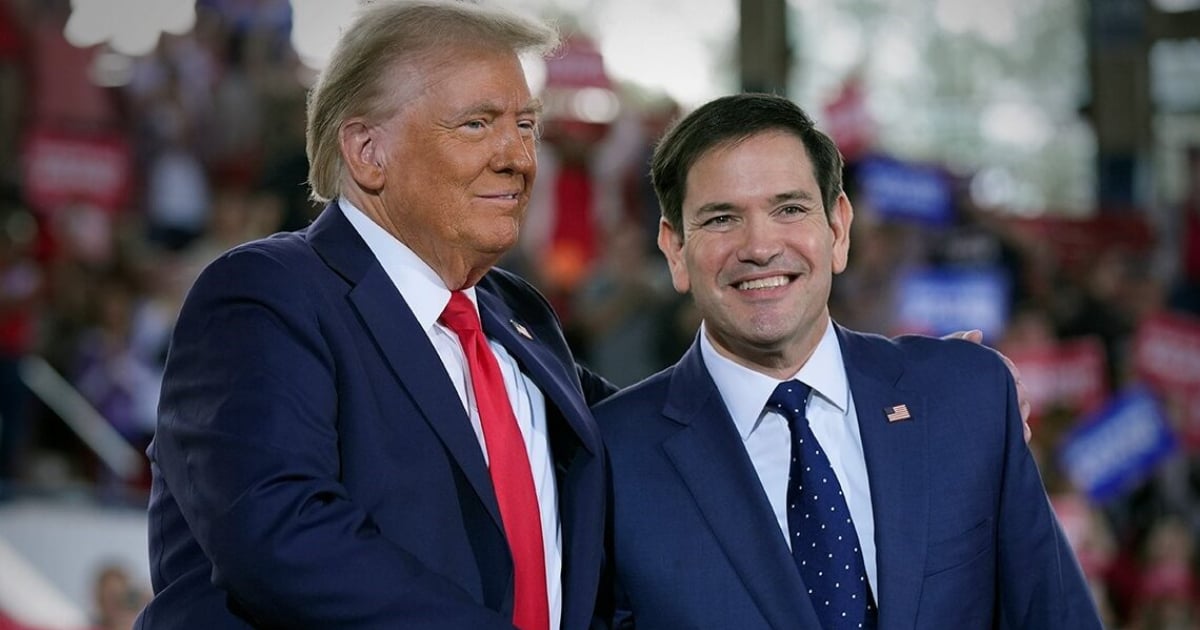On Monday, U.S. Secretary of State Marco Rubio reiterated the United States' dedication to the liberty and prosperity of the Cuban people following the signing of a new National Security Presidential Memorandum (NSPM) by President Donald Trump. This memorandum re-establishes a firm and restrictive stance toward the Cuban regime, reversing the leniencies introduced by the Biden administration.
Rubio shared on the social platform X, "Thanks to President Trump's leadership, the United States is dedicated to promoting freedom and prosperity in Cuba. Let there be no doubt: under his leadership, we will hold the Cuban regime accountable and support the Cuban people in their pursuit of freedom and justice."
The White House announced, with confirmation from Reuters, that the directive bans all financial transactions—both direct and indirect—with entities controlled by the Cuban military, such as the conglomerate GAESA, except for operations that directly benefit the Cuban populace or align with U.S. strategic interests.
Additionally, the policy upholds the elimination of the "Wet foot, dry foot" policy to curb irregular migration and prohibits American tourism in Cuba, ensuring compliance through regular audits and mandatory records for at least five years.
The memorandum also commands a systematic review of human rights violations in Cuba, including arbitrary detentions, repression of activists, harassment of religious figures, and families of dissidents, along with a demand for an updated report on U.S. fugitives harbored by the Cuban regime.
Initiatives for Empowering Cuban Civil Society
Key priorities highlighted in the directive include initiatives to expand internet access, bolster press freedom, promote private enterprise independent of state control, and ensure freedom of association, aiming to support Cuba's civil society.
Congressman Mario Díaz-Balart praised President Trump and Rubio for their "commitment to a free Cuba" and for prioritizing U.S. national security.
Activist Rosa María Payá, who recently assumed her role as commissioner of the Inter-American Commission on Human Rights (IACHR), noted that the memorandum "prohibits transactions that strengthen oppressors" and expressed gratitude for the support of Cuba's freedom cause.
Republican Congressman Carlos Giménez also welcomed the announcement and reinforced his backing of the measures. With this new policy, the Trump administration claims to fulfill its electoral promise to "support the Cuban people in their enduring quest for justice, freedom, and democracy," marking a decisive departure from the conciliatory approach of the Barack Obama and Joe Biden era toward Havana.
Responses from Havana
Cuban leader Miguel Díaz-Canel responded to the new memorandum, declaring, "The impact will be felt, but we will not be subdued," attempting to project resilience while betraying the anxiety of a regime witnessing the unraveling of its power structure.
Meanwhile, Foreign Minister Bruno Rodríguez Parrilla condemned the new U.S. policy as "criminal conduct" and a breach of human rights.
U.S. Policy on Cuba: Sanctions and Their Impact
What is the main goal of the new U.S. policy towards Cuba?
The primary objective of the new U.S. policy is to promote freedom and prosperity in Cuba by holding the Cuban regime accountable and supporting the Cuban people's pursuit of justice and democracy.
How does the memorandum affect financial transactions with Cuba?
The memorandum bans all financial transactions with entities controlled by the Cuban military, except those that directly benefit the Cuban people or align with U.S. strategic interests.
What are some key initiatives included in the new policy?
Key initiatives include expanding internet access, enhancing press freedom, encouraging private enterprise free from state control, and ensuring freedom of association to support Cuba's civil society.
